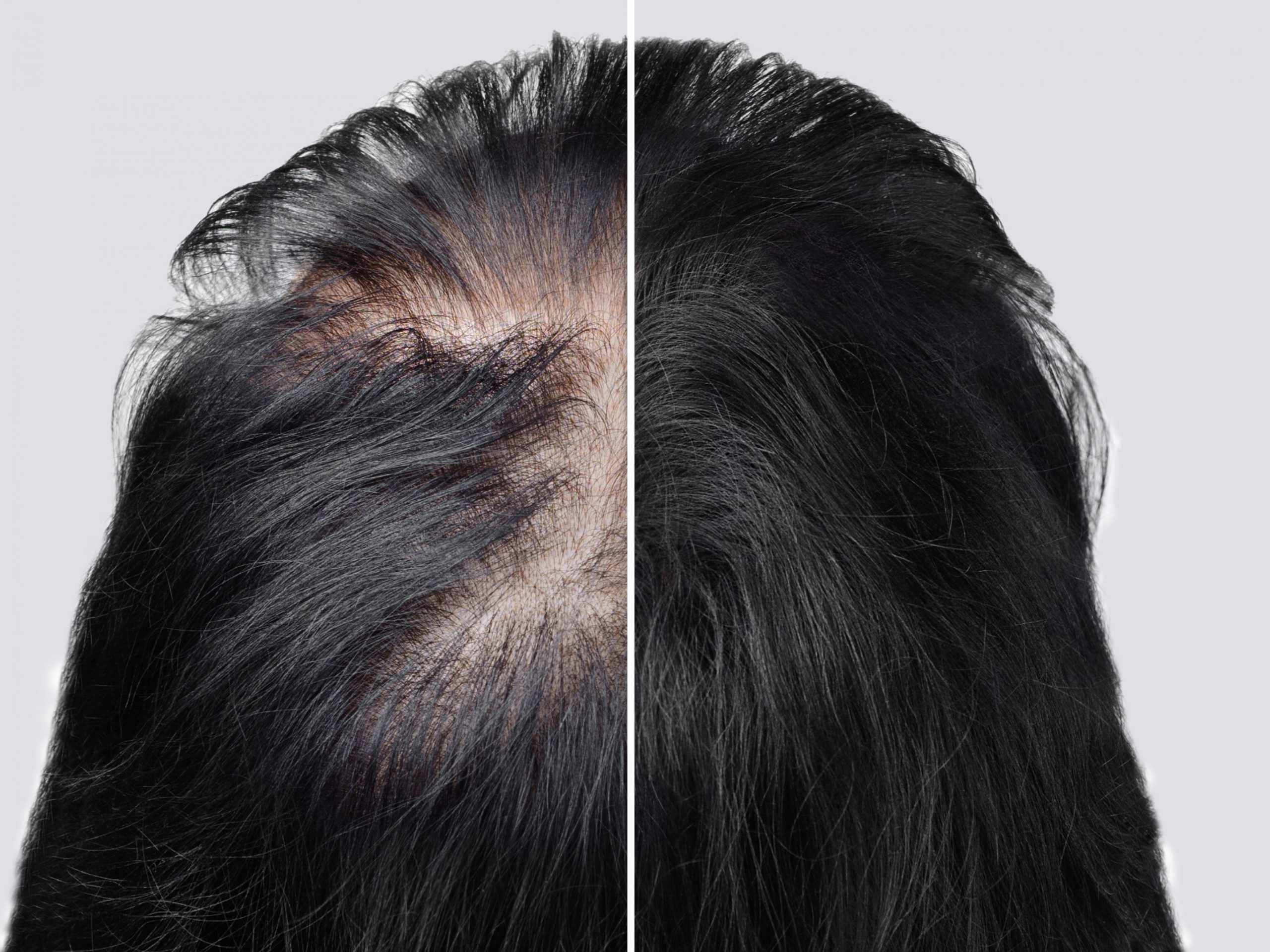Alopecia or Hair fall can be caused by a variety of factors, often related to genetics, lifestyle, health conditions, or environmental influences. Here are some common reasons for hair fall
1. Genetics (Androgenetic Alopecia):
This is the most common cause of hair loss, often referred to as male-pattern baldness or female-pattern baldness. It is hereditary and typically results in a predictable pattern of hair thinning.
2. Hormonal Changes:
Hormonal imbalances due to conditions like pregnancy, childbirth, menopause, thyroid disorders, or polycystic ovary syndrome (PCOS) can lead to hair fall. In men, fluctuations in testosterone levels can also contribute.
3. Nutritional Deficiencies:
A lack of essential nutrients such as iron, zinc, biotin, vitamin D, and protein can weaken hair follicles, leading to increased hair shedding.
4. Stress:
Physical or emotional stress can trigger hair loss. Stress can cause a type of hair fall called telogen effluvium, where hair prematurely enters the resting phase of the hair growth cycle and falls out.
5. Medical Conditions:
Conditions such as alopecia areata (an autoimmune disorder), thyroid disease, lupus, and scalp infections can cause significant hair loss.
6. Medications and Treatments:
Certain medications, including those for cancer (chemotherapy), high blood pressure, depression, and arthritis, can cause hair fall as a side effect.
7. Hairstyling and Hair Treatments:
Frequent use of harsh chemical treatments (like coloring, perming, or relaxing), heat styling tools, and tight hairstyles (like braids or ponytails) can damage hair and lead to breakage and hair loss.
8. Aging:
As people age, hair growth slows down, and hair becomes thinner and more prone to falling out. This is a natural part of the aging process.
9. Infections:
Scalp infections, such as ringworm, can invade the hair and scalp, leading to hair loss.
10. Poor Hair Care Habits:
Inadequate scalp care, using inappropriate hair products, or not washing hair regularly can contribute to hair thinning and loss.
11. Autoimmune Disorders:
In conditions like alopecia areata, the immune system mistakenly attacks hair follicles, leading to sudden hair loss in patches.
12. Environmental Factors:
Exposure to pollution, sun damage, and harsh weather conditions can weaken hair and lead to increased shedding.
Homeopathy offers a holistic approach to treating hair fall by addressing the underlying causes rather than just the symptoms. It focuses on individualized treatment, where remedies are selected based on a person’s overall health, lifestyle, and specific symptoms. Here’s how homeopathy can play a role in managing hair fall:
1. Addressing Root Causes:
Homeopathy seeks to identify and treat the root causes of hair fall, which can include hormonal imbalances, nutritional deficiencies, stress, or underlying health conditions. By addressing these underlying issues, homeopathic remedies can help stop or slow down hair loss.
2. Personalized Treatment:
Homeopathy is highly individualized. A homeopathic practitioner will consider a person’s complete health history, emotional state, and specific symptoms before prescribing a remedy. This personalized approach increases the chances of effectively treating hair fall.
3. Regulating Hormonal Imbalances:
Hormonal changes are a common cause of hair loss, particularly in conditions like androgenetic alopecia, menopause, or thyroid issues. Homeopathic remedies can help balance hormones naturally, which may reduce hair fall and promote healthier hair growth.
4. Reducing Stress:
Stress is a significant contributor to hair fall. Homeopathic remedies can help manage stress and anxiety, indirectly benefiting hair health. Remedies like Ignatia or Natrum Muriaticum may be used to help reduce stress-related hair loss.
5. Improving Scalp Health:
Homeopathy can also address scalp conditions such as dandruff, dryness, or fungal infections, which can lead to hair fall. Remedies like Arsenicum Album or Thuja might be prescribed to treat scalp issues, creating a healthier environment for hair growth.
6. Strengthening Hair Follicles:
Some homeopathic remedies are believed to strengthen hair follicles, making them more resilient and less prone to shedding. For example, Silicea is often used to promote hair growth and strengthen weak hair.
7. Supporting Overall Health:
Since homeopathy views the body as a whole, improving general health can have a positive impact on hair health. Remedies may be used to improve digestion, boost the immune system, or enhance nutrient absorption, all of which contribute to healthier hair.
Common Homeopathic Remedies for Hair Fall:
- Silicea: Often used for strengthening hair and nails, and promoting hair growth.
- Phosphorus: Recommended for individuals with excessive hair fall, particularly if the hair falls out in large clumps.
- Natrum Muriaticum: Used for hair loss associated with dandruff or scalp dryness.
- Lycopodium: Commonly prescribed for premature baldness or hair loss due to hormonal issues.
- Fluoricum Acidum: Used in cases of alopecia areata or hair loss following stress or illness.

